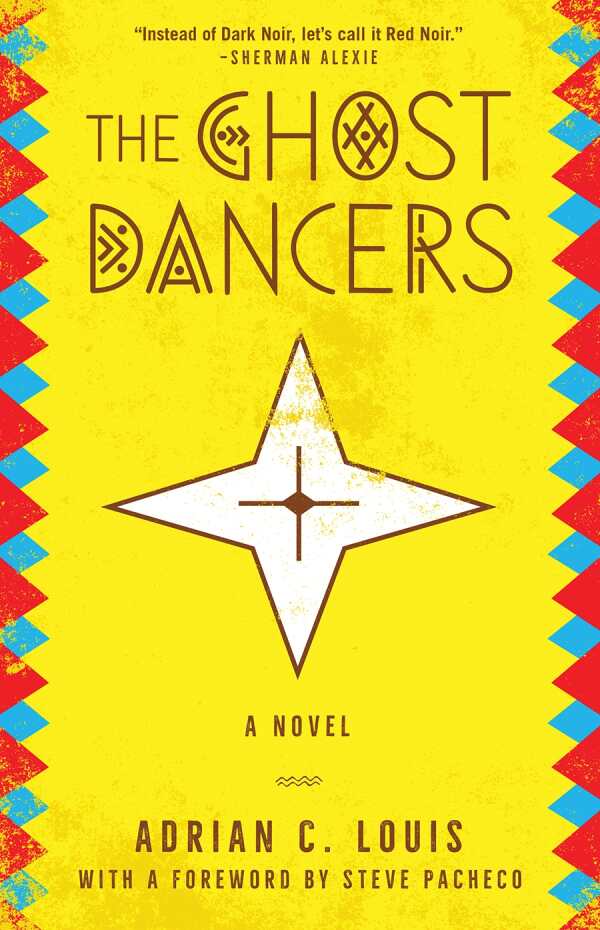The Ghost Dancers
Written thirty years ago and now published posthumously, Adrian C. Louis’s novel The Ghost Dancers is about the violence that enables a father-son reunion.
The Wilson family descends from a powerful medicine man, but the glory of the past evades them. Quanah, after attacking his mother’s lover, decides to clear his head by staying with his father, Bean. Bean is a member of the Ghost Dance Society, a secret organization that metes out vengeance against anyone whom they feel has escaped just punishment. Both men have plenty of reasons to be angry, whether they’re real and imagined. One more tragedy could send them spiraling.
The men are as hardened and unsavory as the world they inhabit. They are both victims of and perpetrators of racial discrimination. They struggle with anger, insecurity, and depression brought on by persistent poverty, alcoholism, emasculation, and domestic abuse. Broken homes are ubiquitous, even expected. The only form of power available to Quanah and Bean is of the violent, nihilistic kind.
But Quanah and Bean find that power does not bring stability or happiness. As Quanah comes to realize that his father’s world is not the haven he expected, Bean struggles to escape his dark, destructive vices. While the book’s premature ending leaves a large gap between its events and the prologue explanation of Bean’s fate, resulting in unanswered questions, it does make its perspective clear: that the US has no interest in what the Wilsons have to offer, and that the country will never offer its Native populations anything worth having.
The Ghost Dancers is a grim, uncompromising novel in which a Native American family deals with the crushing effects of generations of colonialism.
Reviewed by
Eileen Gonzalez
Disclosure: This article is not an endorsement, but a review. The publisher of this book provided free copies of the book to have their book reviewed by a professional reviewer. No fee was paid by the publisher for this review. Foreword Reviews only recommends books that we love. Foreword Magazine, Inc. is disclosing this in accordance with the Federal Trade Commission’s 16 CFR, Part 255.

